Advanced Supplement Benefits: Bioavailability and Stacking for Golfers
Share
When it comes to supplements, not all ingredients are absorbed equally by the body. This concept, known as bioavailability, plays a critical role in how effective supplementation can be. For golfers who need steady energy, focus, and recovery, understanding bioavailability and how supplements are blended or stacked can be the difference between a well-tuned body and one that’s just running on empty.
What Is Bioavailability?
In the simplest terms, bioavailability refers to how much of a nutrient or compound actually makes it into your bloodstream after you take it. (1) You can think of it like fuel for your car; it's not just about how much gas you put in, but how efficiently your engine converts that gas into power.
With supplements, higher bioavailability means your body can absorb and use the nutrients more efficiently, which is essential when you’re out on the course or recovering after a long round. For example, turmeric by itself has poor bioavailability, but when paired with BioPerine (an extract from black pepper), its absorption can increase significantly. (2)
The Power of Stacking and Blending Supplements
Stacking refers to combining different supplements to enhance their effects. Just like your golf bag has different clubs for different purposes, your diet needs the right mix of nutrients and minerals to get you through the day. In the world of supplements, stacking certain nutrients can improve their absorption or amplify their benefits.
For example, pairing supplements that support hydration (like ION + Electrolyes) with those that assist in muscle recovery (like Creatine Monohydrate) can be a powerful combination because electrolytes like sodium can improve creatine's uptake into muscle cells. Another example is blending supplements for energy (like B vitamins) with those that may promote focus (like omega-3 fatty acids, zinc, or L-theanine) can help you stay sharp and energized without the jitters. (3)(4)(5)
Popular Supplements for Golfers
- ION + Electrolytes: Hydrate & Recover from Swing Stacks is a combination of electrolytes and amino acids that help restore hydration levels and aid in muscle repair, crucial after sweating it out for 18 holes. Add in magnesium to potentially improve muscle relaxation and reduce cramps, and you’ve got a well-rounded recovery stack. (6)(7)
- Vitamin K2 + D3: This Strength & Support stack provides two essential vitamins, especially for golfers in areas without consistent sunlight, that facilitate the absorption and metabolism of calcium. Vitamin D3 helps your body absorb calcium from your digestive tract, while K2 activates proteins that direct the calcium to your bones and teeth (and away from your arteries and soft tissues). (3)(5)(8)
- Turmeric & Black Pepper: Our Recovery stack provides anti-inflammatory & joint support to help golfers manage everyday aches and pains. Combining turmeric with black pepper for absorption alongside glucosamine and MSM for joint health can support long-term mobility and recovery. (2)(9)(10)
Blending for Better Bioavailability
When formulating supplements, certain ingredients can be combined to improve the bioavailability of others. This isn’t just about getting more of the nutrient, but about getting more out of the nutrient.
For instance, fat-soluble vitamins like vitamin D are better absorbed when taken with healthy fats. So, pairing them with omega-3 fatty acids can optimize their bioavailability. (11) Similarly, certain plant-based compounds like quercetin (found in apples and onions) can help boost the absorption of resveratrol, a powerful antioxidant. (12)
Why It Matters for Golfers
Golfers need a fine balance of strength, endurance, and focus on the course. Supplements can give you an edge in all these areas, but only if your body can properly absorb and utilize them. Focusing on bioavailability and making smart choices with stacked supplements can improve your overall performance, helping you to maintain energy, stay focused, and recover faster.
So, next time you're reaching for a supplement, take a closer look at how it’s formulated and whether it can help you get the most out of your game. Just like every club in your bag has a role to play, so too should each supplement in your stack.
Peer Reviewed by Dr. Jennie Stanford
Jennie Stanford, M.D., FAAFP, DipABOM, is a distinguished double board-certified physician specializing in family medicine and obesity medicine. With a Bachelor of Science in Nutrition and Dietetics, Dr. Stanford brings a comprehensive understanding of health, nutrition, and overall wellness to her medical practices. Her extensive clinical experience includes traditional clinic practice, hospitalist care, and a specialized focus on obesity medicine. This diverse background has helped develop her expertise in medical accuracy reviewing, health writing, editing, medical education, and subject matter expert consulting. She is particularly passionate about optimal nutrition, supplements, and healthy lifestyle habits, and she has worked with athletes at all levels.
Dr. Stanford is committed to providing trusted, evidence-based information aimed at promoting public health. As a Fellow of the American Academy of Family Physicians (FAAFP) and a Diplomate of the American Board of Obesity Medicine (DipABOM), her practice is driven by a strong combination of personalized care and evidenced-based recommendations.
References
- Stielow, M., Witczyńska, A., Kubryń, N., Fijałkowski, Ł., Nowaczyk, J., & Nowaczyk, A. (2023). The Bioavailability of Drugs-The Current State of Knowledge. Molecules (Basel, Switzerland), 28(24), 8038. https://doi.org/10.3390/molecules28248038
- Heidari, H., Bagherniya, M., Majeed, M., Sathyapalan, T., Jamialahmadi, T., & Sahebkar, A. (2023). Curcumin-piperine co-supplementation and human health: A comprehensive review of preclinical and clinical studies. Phytotherapy research : PTR, 37(4), 1462–1487. https://doi.org/10.1002/ptr.7737
- Tardy, A. L., Pouteau, E., Marquez, D., Yilmaz, C., & Scholey, A. (2020). Vitamins and Minerals for Energy, Fatigue and Cognition: A Narrative Review of the Biochemical and Clinical Evidence. Nutrients, 12(1), 228. https://doi.org/10.3390/nu12010228
- Fekete, M., Lehoczki, A., Tarantini, S., Fazekas-Pongor, V., Csípő, T., Csizmadia, Z., & Varga, J. T. (2023). Improving Cognitive Function with Nutritional Supplements in Aging: A Comprehensive Narrative Review of Clinical Studies Investigating the Effects of Vitamins, Minerals, Antioxidants, and Other Dietary Supplements. Nutrients, 15(24), 5116. https://doi.org/10.3390/nu15245116
- Baba, Y., Inagaki, S., Nakagawa, S., Kaneko, T., Kobayashi, M., & Takihara, T. (2021). Effects of l-Theanine on Cognitive Function in Middle-Aged and Older Subjects: A Randomized Placebo-Controlled Study. Journal of medicinal food, 24(4), 333–341. https://doi.org/10.1089/jmf.2020.4803
- Murphy, G. R., Dunstan, R. H., Macdonald, M. M., Borges, N., Radford, Z., Sparkes, D. L., Dascombe, B. J., & Roberts, T. K. (2019). Relationships between electrolyte and amino acid compositions in sweat during exercise suggest a role for amino acids and K+ in reabsorption of Na+ and Cl- from sweat. PloS one, 14(10), e0223381. https://doi.org/10.1371/journal.pone.0223381
- Reno, A. M., Green, M., Killen, L. G., O'Neal, E. K., Pritchett, K., & Hanson, Z. (2022). Effects of Magnesium Supplementation on Muscle Soreness and Performance. Journal of strength and conditioning research, 36(8), 2198–2203. https://doi.org/10.1519/JSC.0000000000003827
- Guest, N. S., VanDusseldorp, T. A., Nelson, M. T., Grgic, J., Schoenfeld, B. J., Jenkins, N. D. M., Arent, S. M., Antonio, J., Stout, J. R., Trexler, E. T., Smith-Ryan, A. E., Goldstein, E. R., Kalman, D. S., & Campbell, B. I. (2021). International society of sports nutrition position stand: caffeine and exercise performance. Journal of the International Society of Sports Nutrition, 18(1), 1. https://doi.org/10.1186/s12970-020-00383-4
- Zhu, X., Sang, L., Wu, D., Rong, J., & Jiang, L. (2018). Effectiveness and safety of glucosamine and chondroitin for the treatment of osteoarthritis: a meta-analysis of randomized controlled trials. Journal of orthopaedic surgery and research, 13(1), 170. https://doi.org/10.1186/s13018-018-0871-5
- Toguchi, A., Noguchi, N., Kanno, T., & Yamada, A. (2023). Methylsulfonylmethane Improves Knee Quality of Life in Participants with Mild Knee Pain: A Randomized, Double-Blind, Placebo-Controlled Trial. Nutrients, 15(13), 2995. https://doi.org/10.3390/nu15132995
- Dawson-Hughes, B., Harris, S. S., Lichtenstein, A. H., Dolnikowski, G., Palermo, N. J., & Rasmussen, H. (2015). Dietary fat increases vitamin D-3 absorption. Journal of the Academy of Nutrition and Dietetics, 115(2), 225–230. https://doi.org/10.1016/j.jand.2014.09.014
- Arias, N., Macarulla, M. T., Aguirre, L., Milton, I., & Portillo, M. P. (2016). The combination of resveratrol and quercetin enhances the individual effects of these molecules on triacylglycerol metabolism in white adipose tissue. European journal of nutrition, 55(1), 341–348. https://doi.org/10.1007/s00394-015-0854-9
